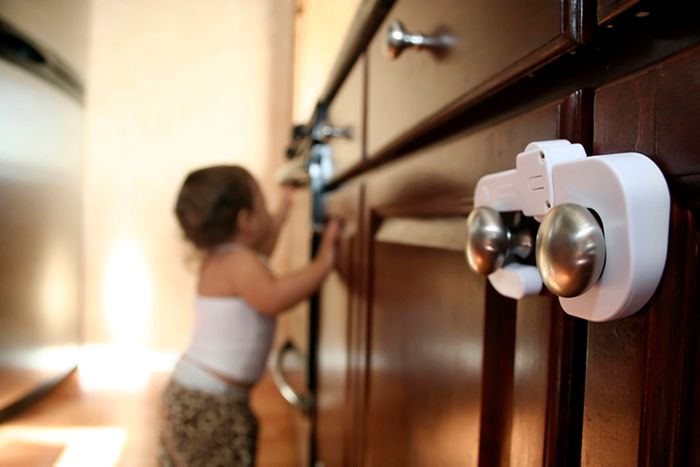
The kitchen is where you live your life. It is where you prepare healthy meals for your family, and where your family gathers to talk about the cares of the day. Unfortunately, the kitchen is also the site of many household accidents, from cooking fires to slip and fall injuries. If you want to keep your loved ones safe, you need to take some proactive steps to improve kitchen safety. The 10 tips listed below are perfect for seniors living alone, but they can apply to anyone, no matter what their age.
Illuminate cabinets and appliances with under-counter lights. You can use battery-powered stick-on lights or LED light bars that plug into an electrical outlet.
Clear away clutter. Make sure the kitchen floor is clean and free of clutter and tripping hazards.
Use brightly colored stickers to indicate "On" and "Off” on stovetops and ovens. The markings on these appliances can be hard to read, especially for seniors with failing eyesight.
Make sure all work spaces are brightly illuminated. Replace low wattage light bulbs with higher wattage bulbs and LED light bars.
Mark the hot and cold water faucets with brightly colored stickers.
Have a fire extinguisher nearby. Not only should you keep a fire extinguisher near the kitchen, but you should make sure it's not expired. Learn how to use the fire extinguisher as well. You never know when you might need it.
Check your carbon monoxide detectors and smoke alarms. Replace the batteries if needed and make sure to test them to ensure that they are in proper working order. Smoke alarms will alert you if a fire has broken out in time for you to get everyone to safety and to possibly put the fire out if it's small. Your carbon monoxide detectors will ensure that none of your appliances are producing dangerous levels of carbon monoxide, which is an odorless, tasteless and colorless gas that can be deadly.
